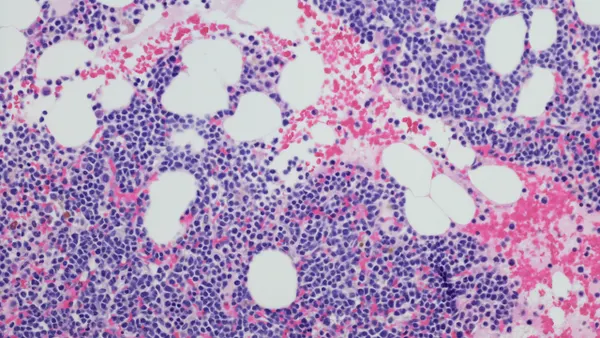Today, a brief rundown of news involving Bluebird bio and Eli Lilly, as well as updates from Mersana Therapeutics, Teva Pharmaceutical and Unity Biotechnology that you may have missed.
Regulators have cleared private equity firms SK Capital Partners and Carlyle Group to wrap up their proposed takeover of gene therapy developer Bluebird bio. In a Monday statement, Bluebird said it expects to complete the merger “promptly,” once stockholders tender their shares. SK Capital and Carlyle have offered about $29 million for Bluebird, agreeing to pay $3 per share in cash as well as, potentially, another $6.84 per share via a so-called contingent value right payment. Bluebird needs to finalize the deal to avoid defaulting on debt and pleaded for shareholder support, noting that it’s “extremely unlikely” they would get any payouts in a bankruptcy or liquidation. — Ben Fidler
Eli Lilly is licensing an experimental drug that startup Alchemab Therapeutics is developing for amyotrophic lateral sclerosis and other neurodegenerative conditions. Lilly could pay Alchemab up to $415 million in the deal announced Tuesday, but didn’t specify how much of that cash is in the form of a guaranteed, upfront payment. The transaction builds on an earlier research collaboration between Lilly and Alchemab and is the second deal the pharmaceutical giant has made for an ALS therapy since last June, when it grabbed rights to a drug prospect from QurAlis. The treatment at the center of the latest pact, ATLX-1282, is nearing human testing, according to Alchemab. — Ben Fidler
The FDA awarded “interchangeability” status to Teva Pharmaceutical and Alvotech’s biosimilar version of Johnson & Johnson’s autoimmune drug Stelara, the companies said Monday. The designation allows pharmacies to directly substitute the biosimilar, named Selarsdi, for J&J’s drug without a direct physician order. The two companies launched Selarsdi in February, just after Amgen started selling its Stelara copycat Wezlana and shortly before other competitors from Samsung Bioepis and Biocon became available. — Jonathan Gardner
Unity Biotechnology will cut all of its staff and begin a strategic review that could result in a range of outcomes, from a licensing deal or sale to a liquidation, the company said Monday. Unity had about $17 million in cash, cash equivalents and marketable securities as of the end of March, only enough to fund operations through the rest of the year. The announcement came in conjunction with updated results from a study of an experimental eye drug that has struggled in mid-stage testing to match Regeneron’s Eylea. That drug is among the assets Unity could sell off during its review. — Jonathan Gardner
Mersana Therapeutics will lay off 55% of its staff and prioritize work on an experimental breast cancer drug. The restructuring announced Tuesday will also see the company cut down its research activities and eliminate its internal pipeline. Mersana, a developer of antibody-drug conjugates for cancer, will focus resources on its lead drug, known as emi-le and in early-stage testing for triple-negative breast cancer. The cost cuts will enable Mersana to operate through the third quarter of next year. — Ben Fidler
The FDA has lifted a hold on clinical testing by Atara Biotherapeutics and set a meeting to discuss the approval path for its drug Ebvallo. The agency in January rejected an application to clear Ebvallo for a type of serious complication associated with transplant surgeries and, soon after, suspended multiple Atara studies because of compliance issues FDA inspectors found at a third-party manufacturing site. The regulator has since reviewed supplemental data and allowed Atara to resume a pair of suspended trials. It’ll also meet with Atara to address the issues surrounding Ebvallo’s rejection, the company said. — Ben Fidler












